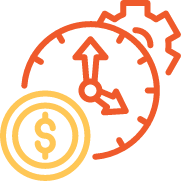Data Science in Malaysia Earning
by Salah MO| November 11th, 2021 | Information Technology
Since the beginning of our Data Science webinars and workshops, there has always been at least one individual in the audience who has inquired, "How much does a data scientist in Malaysia earn?" We have always received this question.
We recognise that this is a highly practical topic, particularly for those considering a career in data science.
As corny as it may seem, if you are simply doing it for the money, you will burn out very quickly. This is true for any career, not just teaching. We'll go through what data scientists do and the career prospects for those who work in this field before we tell you how much a data scientist makes.
What exactly does the title "Data Scientist" imply?
Additional than becoming a data scientist, there are several other careers in the area of big data to consider, such as data analyst, data engineer, and so on. So, what exactly does becoming a data scientist entail?
Take on the job of data scientist as more of a management one, in which you will need to direct your team to analyse the large amount of data that has been acquired and transform it into valuable insights that will contribute to the company's expansion.
So, in addition to being focused on the execution and technical aspects of the job, it is critical for you to have excellent organisational skills in order to see projects through to completion, as well as excellent communication skills in order to be able to lead the team and act as an advisor to your stakeholders based on the data you have gathered.
Please see the infographic below for more information on the work that a data analyst or data engineer undertakes.
Data scientist as opposed to data analyst
Data scientist vs. data engineer: what's the difference?
What are the prospects for a data scientist's future career?
As we continue to progress through this data age, many individuals are contemplating pursuing a career in data science since it seems to be a promising avenue for professional success.
The wonderful thing about studying data science is that it does not need you to abandon whatever you have been learning or to leave the field in which you have been working in order to pursue a career in data science elsewhere. It is possible for many individuals who are enthusiastic about what they are doing and who want to get additional insights from the data they already have to pursue a career in data science.
You may gather the essential data and analyse it in order to address your everyday difficulties, for example, if you operate in the hotel industry and want to better understand what keeps your clients coming back and what keeps them away. Learning data science in this context would thus assist you in developing a whole new skill set while simultaneously enhancing your worth as an asset to the organisation.
However, for the sake of analysing the potential career path of someone with a background in data science, there are two basic sorts of data scientists, which are classified as Type A and Type B. They make up the bulk of data scientists since they are Type A data scientists (think "Analysis") These individuals are well-known for possessing extensive knowledge of the business in which they operate, and they are often called upon to do analytical work in order to uncover insights that will help the firm.
Type B data scientists (think "Builders"), on the other hand, are the archetypal programming nerds who work in data science. These individuals are very well-versed in a variety of computer languages, and they focus on developing tools and frameworks that can organise and transform the data acquired into meaningful decision-making information.
These Type B data scientists are responsible for creating the creepy pop-up adverts that display things like "Products you like" or "People you may know," to give you an example. As a lead data scientist, they are almost always from this group, and because of their additional expertise, they will be able to manage and lead type A data scientists.
However, depending on the sort of data scientist you want to be, many individuals begin their careers in data science by doing more operational tasks such as data mining, data analysis, and so on.
Later on, after gaining a few more years of experience, you can branch out into different areas of data science (for example, manufacturing, research and development, and so on), and you may transition from the more technical and analytical side of things (Type A) to building models that allow you to interact with your users (Type B).
You may further your career by becoming a senior data scientist, and eventually a lead data scientist, if you choose to pursue a more development-oriented route. It will be the lead data scientist's responsibility to oversee your data science team and to advise stakeholders on the outcomes of your research.
When it comes to data scientists, what is the going rate in Malaysia?
After expanding on the topic of data scientist as a profession, we are finally here to address your burning question.
According to current job openings, an entry-level data scientist or even data analyst may expect to earn between RM 4,000 and RM 6,000 on average.
Continue your journey and advance to the position of chief data scientist, in which case you would be in charge of leading and directing the team rather than focusing on the technical side of things, your compensation might possibly reach RM 100,000. As previously said, as you have more experience along with additional skill sets such as management talents, your remuneration will reflect the value you provide to the firm.
What are the most important skill sets that have an impact on the compensation a data scientist earns?
Regarding technical abilities, one of the most evident abilities that will have an impact on your wage is your knowledge of the programming language. According to the O'Reilly Data Science Survey, which included 600 respondents from a variety of sectors, the most in-demand programming languages are Apache Spark and Scala, which are ranked first and second respectively.
However, in general, data scientists who have a strong command of as many programming tools as feasible would see a big increase in their income compensation. Consequently, if you want to further your professional development, a continual learning process including a variety of programming tools would be quite advantageous.
The number of years of experience, especially in data science positions as opposed to simple data analysis work, is another relatively obvious aspect that influences income and is shown in the table below.
As a general rule of thumb, if you want to work since a chief data scientist, search for employment prospects that enable you to design more models rather than just crunch statistics, as this will put you in a better position to further your professional growth.
A bigger skill set may be learned via experience, on top of technical talents, such as solid management skills to lead a team and good business instincts to guide them toward issue solving. With these abilities, you will be able to provide a more comprehensive contribution to your organisation, which will, in turn, increase your worth in the eyes of your employer, as shown by the compensation they are prepared to pay you.
In Malaysia, there will be a high need for data scientists and data professionals in 2021.
Data science will continue to be the most highly in-demand skill in Malaysia into 2021, and it was even ranked #1 in the top emerging in-demand skill in data science in Malaysia , and this growing trend is only just getting started – the reason being that the country is currently experiencing a severe shortage of data professionals, which is at an all-time high.
If you just browse through the appropriate employment sites or platforms, you'll discover that many data-related positions are still open as a result of the local tech skills shortage, as you would expect.
As of April 2021, there were more than 240,000 digital talents in Malaysia who had LinkedIn profiles, with more than half of them residing in Selangor or Kuala Lumpur, according to data from LinkedIn.
Companies must develop and harness the data that they are presently creating or that they have gathered in the past as we move towards the Industry 4.0 and Big Data age. As a result, data science skills are relevant across a wide range of sectors and industries. So, whether you work in banking, logistics, the real estate industry, or any other field, gaining data science skills will undoubtedly help you advance in your profession.
What if you're in the middle of your professional life and want to study data science?
If you are presently employed as a non- or partial-technical professional or are considering a career change into data science, there has never been a better moment to do it. For the simple reason that, through the years of accumulated experiences that you have, it's probably the best time to start because you have already acquired domain expertise in your niche or market, which will be extremely beneficial in your data science practise – having this means that you know exactly which business questions or issues to solve using data science techniques and methodologies.
As an alternative, if you're in your early career stages, you could wish to investigate and identify what your final aim or ultimate purpose of studying data science will be, as well as the professional path you're about to begin.
The ability to derive business insights from collected data science in malaysia– by truly understanding how a business operates in different markets and visualising it to tell a storey from the data you've cleansed – is just as important as having technical skills such as programming, statistics, and mathematics knowledge.
A job in data science is a lifelong learning adventure. As new and emerging technologies emerge, your career prospects will become more useful and profitable as you branch out and travel into new industries with your newly acquired knowledge and skill set and experience.
Finally, whether you're starting out in your job, seeking to move into data science, or aspiring to be a data professional, study the fundamentals - skillsets and industry knowledge that you can put to use at your place of employment to be successful. Not to mention the open-source tools that are accessible, which are an important element of a data scientist's arsenal!



